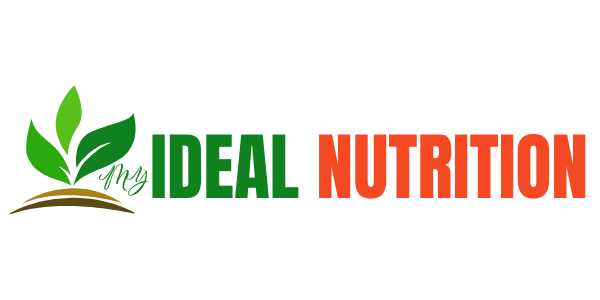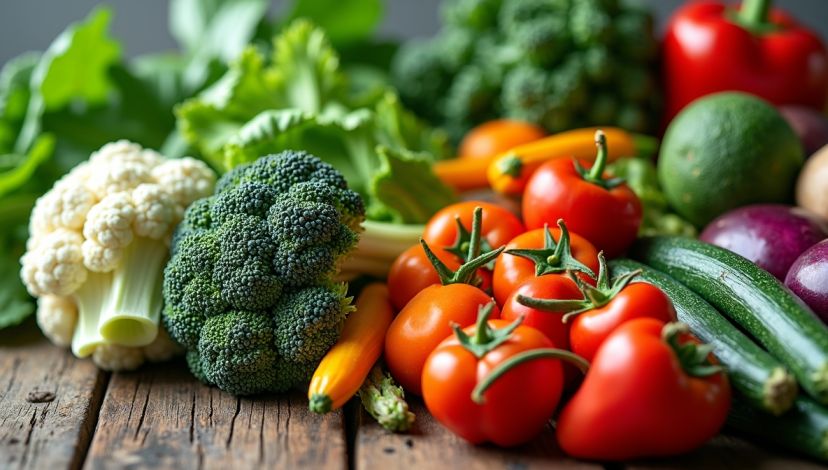Eggs are one of the most common and popular products on the world. Boiled, scrambled, poached, beaten into your favorite breads, cakes, cookies, corn breads, puddings, or pastries, scrambled, poached, fried-the eggs are not only delicious gastronomic fare, but are an astonishing package of nutritious goodies. As more people prioritize health and wellness in their daily lives, understanding egg nutrition facts has never been more important.
So what is it about an egg that makes it so powerful, nutritionally speaking? What is it that makes them refer to it as a nature multivitamin? Now let us break the facts, bust a few old wives tales and learn why eggs are worth a place on your plate, you guessed it, every day.
Eggs contain high-quality protein, various vital vitamins (such as B12, D, A), minerals, and good fats, which make up a balanced body. In spite of some controversies on cholesterol of the past, it is seen in current studies that eggs are fine when consumed moderately, and are healthy to most individual. We will go through the science, show eggs compared to other foods, as well as give handy tricks that will allow you to enjoy the benefits they offer both tasty and safely.
Key Takeaways:
- Eggs are a rich and cheap protein and source of necessary vitamins.
- Most people do not experience major repercussions of cholesterol in their blood as a result of consuming eggs.
- Eggs can enhance the state of muscle health, psychological well-being, and the proper functioning of your brain.
Why Eggs are a Nutrition Powerhouse?
Eggs are actually quite literally referred to as nature multivitamin due to the fact that most nutrients that your body requires, they are present in eggs, just in a small package. Here is the nutriment in one large egg:
- Calories: 70–78kcal
- Protein: 6-7g (complete, with all of the essential amino acids)
- Total Fat: approximately 5g (less than 2g of saturated fat)
- Cholesterol: 170-186mg (presently concentrated in the yolk)
- Carbohydrates: Nearly 0g (and so they are low-carb)
- Important Vitamins & Minerals: Vitamin B2 ( riboflavin ), B12, D, A, E, selenium, phosphorus, choline, and folate
A practical example: Amy Richter, RD, told us that one of the easiest ways to increase your protein and micronutrient intake per day with few calories or even less preparation, is a hard-boiled egg, as this is one of the best snacks to increase your daily calorie count as an athlete or a busy person.
Eggs are also valued because it is an easily absorbed protein, which your body can use. The skill contributes to the sustenance of and restoration of tissues, the composition of muscle, and the strength of your immune system. They include important micronutrients such as choline (good brain food), lutein and zeaxanthin (strong antioxidants to the eye), and vitamin D (great bones and immune health).
Professional tip:
Each and every large egg offers six grams of protein and is a good or excellent source of eight vital nutrients, and all this is with only 70 calories, notes the American Egg Board.
What is the Difference Between the Egg Whites and the Egg Yolks? (Table & Analysis)
Eggs contain two major components, e.g., the white (albumen) and the yolk. They both provide nutrients, and their profile are different.
| Nutrient | Whole Egg | Egg White | Egg Yolk |
| Calories | 72 | 17 | 55 |
| Protein (g) | 6.3 | 3.6 | 2.7 |
| Fat (g) | 4.8 | 0.06 | 4.5 |
| Cholesterol (mg) | 186 | 0 | 184 |
| Vitamin A (IU) | 270 | 0 | 245 |
| Vitamin D (IU) | 41 | 0 | 37 |
| Selenium (μg) | 15.4 | 6.6 | 9.5 |
| Choline (mg) | 126 | 0.4 | 116 |
Table 1: Breakdown of Nutrition of whole eggs, whites, and yolks (per large egg).
ALT text: Table of comparison of the nutrition value of whole egg, egg white, and egg yolk – to point out what nutrients can be found in abundance in each piece.
Egg white consists mostly of protein and water and is preferred by people who require a fat-free, low calories in its nutrition. The yolk contains a greater number of nutrients, healthy fats, and practically all other vitamins, such as A, D, E, and choline.
Disclaimer: Depending on some health issues that you might have, it may turn out that your doctor will advise you to limit the amount of yolks you consume- talk to your healthcare provider when you are about to be making massive changes in your diet.
Egg Nutrition Facts: What Does Current Science Say About Cholesterol?
The blaming of eggs was unjustified of increasing the blood cholesterol in the past years. Now the truth is that:
- A medium to large egg has 170-186mg of cholesterol that if all of it is in the yolk.
- Years of study have now revealed that food cholesterol does not significantly affect blood cholesterol as once thought. To the majority of individuals, the consumption of eggs does not increase the risks of heart diseases.
- The major heart health organizations (American Heart Association, British Heart Foundation) have eliminated prior daily egg restrictions on healthy individuals or relaxed these restrictions.
Dr. Kathy Warwick, RDN, confirms, A whole egg has about the same amount of protein regardless of whether the egg is raw, boiled, or fried… It is required to mention that there is a certain degree of risk associated with eating raw eggs. It has the capability of providing illness due to Salsalmonella bacteria.”
Master tip:
Eating eggs with moderation (this goes with a balanced diet), is never a health issue unless you have a certain health complication (such as familial hypercholesterolemia or type 2 diabetes).
Note of Importance: Egg cholesterol is not identical to all the people. Check your cholesterol in case you have certain heart diseases or in case your healthcare specialist recommends it.
Egg Nutrition Facts vs. Other Protein Sources That Are Popular (Table & Example)
What is the comparison of eggs with other frequent sources of proteins used during breakfast?
| Food Item | Serving Size | Protein (g) | Calories | Main Nutrients |
| Egg (large) | 1 egg | 6.3 | 70–78 | Complete protein, B vitamins |
| Turkey Bacon | 2 slices | 4 | 60 | B vitamins, less fat |
| Greek Yogurt | 6 oz (170g) | 15–18 | 100–150 | Probiotics, calcium |
| Peanut Butter | 2 Tbsp | 8 | 190 | Healthy fats, vitamin E |
| Tofu | 100g | 8 | 76 | Iron, calcium (fortified) |
Table 2: Comparing egg nutrition facts to other breakfast protein staples.
ALT text: Eggs, turkey bacon, yogurt, peanut butter, and tofu protein and calorie comparison table guide readers in making a well-informed dietary decision.
Real-life application:
Eggs are a lean, high-protein source of more complete amino acids, which makes it a very strong protein punch and an excellent source of protein food choice among vegetarian athletes. Exchanging breakfast cereals containing sugar with eggs can help one to retain muscle and reduce cravings.
Here is a reminder: Eggs are also nutritious (they have nutrients like choline and vitamin D, which some trendy sources of proteins do not)!
Egg Nutrition Facts in Common and Specialized Diets
Eggs are not only consumed by bodybuilders or in breakfast only, they are a collar saver to any family, a busy student, athletes, and any person interested in saving time and money, and yet maintain all the nutritional values. This is how eggs can promote wellness in the real life:
- For families: In family serving with eggs, it is not only easy to prepare but also affordable and fills to get growing children and busy-bodied persons going.
- For weight loss: Their protein will keep you full, thus preventing unhealthy snacks and regulating the consumption of calories.
- In the case of pregnancy: Eggs are rich in folate, choline, and vitamin B12, which are necessary to develop a fetus and good health of the expectant mother. Eggs are among the foods recommended by the American Pregnancy Association to pregnant women.
- In later life: Eggs require no preparation, are easy to digest, and would suit a geriatric patient in keeping themselves strong and avoiding loss of muscle tone (sarcopenia).
- In the case of vegetarians: Eggs fulfill significant nutrition shortages (particularly choline, vitamin B12, and omega-3, otherwise also carried to a great extent in animal foods).
Tip: Eggs contaminated with salmonella bacteria can having food poisoning. To cook and/or handle eggs safely at all times, make sure its whites and the yolks are solid when eaten.
How to Calculate the Number of Eggs to be Consumed Every Week? Trends, Guidelines, and Prospects
Eggs are one of the most researched foods, and its intake might depend on your health requirements.
- General advice: 1 egg daily (7 eggs weekly) can be deemed safe and nutritious to the majority of healthy people.
- Individuals with diabetes type 2 or other cholesterol-related health issues: Restricted intake may be required in a special group of people. Individuals with diabetes type 2 or other cholesterol-related health issues should stick to their doctor or a registered dietitian.
- Trend evolutions: Omega-3 eggs are healthier still by providing eggs enriched with Omega-3, and organic eggs provide even more nutrients in heart and brain health.
Most civilizations in one way or another eat eggs, whether it is soothing soups in Asia or filling omelets in the Mediterranean. Owing to the increasing popularity of plant-based diets, eggs are still a reliable and convenient source of proteins among non-vegan consumers. New products such as free-range/pasture-raised eggs are transforming the industry to meet consumers seeking animal welfare and other sustainability issues.
Note: Do not forget eggs are perishable: keep them in the fridge, check expiration dates. Get rid of eggs that have cracks or which smell funny.
Conclusion
Eggs are a nutritional superstar, just as its reputation says. Eggs are also an excellent choice of food because they contain high-ambient protein, low calories, and an enormous amount of various vitamins and minerals, so it is quite an easy way to promote muscle health, energy, and brain functioning, among others. Most importantly, the heart risk with the consumption of eggs is not a matter of concern, most especially when eggs are consumed in a balanced diet by the majority of people.
Understanding the [egg nutrition facts] helps you make confident, delicious choices in your meal planning. Get ready to step up your nutrition game? The next time you go shopping, buy a carton of eggs and use it with a recipe you have never tried before, your taste buds and body will love you.
To explore more tips on making healthier food choices, check out our article on Chipotle Nutrition: Unlock the Facts & Make Healthier Choices.
FAQs
Q1: What is the amount of protein within an egg?
A: An egg is also a source of high-quality protein, with approximately 6 to 7 grams of high-quality protein in a single large egg. It is also a complete source of essential amino acids.
Q2: Do eggs help in cutting weight?
A: Yes, eggs are not high in calories, but they are rich in protein that allows you to get full longer and control your cravings to lose weight.
Q3:Does consumption of eggs elevate cholesterol?
A: Eggs have 170-186mg of cholesterol in a large egg, but studies indicate that this does not raise blood cholesterol in most people who are healthy.
Q4: Are eggs safe when taken by diabetics?
A: Yes, it is safe and generally moderate consumption does not harm, but people with a heart condition need to get a doctor’s advice.
Q5: Egg whites or the yolks, which is better?
A: Egg whites are lean sources of protein, but it is in the yolk that most of the egg nutrients, as well as beneficial fats, can be found, so a complete egg is better nutritionally.













